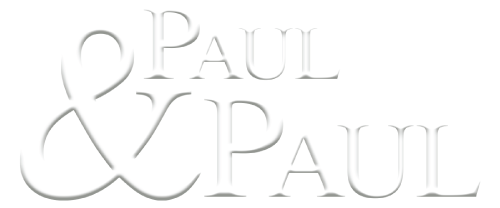Familiarize yourself with the components of unfair competition and how to approach an unfair competition case in order to stay competitive in your market.
My name is Joe. My friend, Mark, has recently started a customized gift business. His logo looks perfect and his gift ideas are just amazingly clever. I love them. Especially because I came up with them three years back.
Yes, I run a customized gift business and last month Mark started his own company based on the same business model. The disappointing part is that he not only copied my concept, but he also stole my logo, my ideas, and my identity. Now I need better friends and an unfair competition lawyer!
If you are lucky enough not to have friends like Mark, let me explain to you what unfair competition is.
Unfair or disloyal competition refers to the deceitful practice of using information of another business to your advantage, causing financial loss to the other businesses or customers. In a recent conversation with my attorney, I discovered that there are several components that go into an unfair competition case.
Let’s take a look at these components:
Trademark Infringement – It refers to the use of the trademark of a company without the permission of its owner. Mark used an almost identical trademark without my knowledge or consent and thus his act comes under unfair competition. Some acts of trademark infringement like making a duplicate copy of a product such as watches, jewelry, and handbags can be considered criminal.
Trade Defamation – If someone misrepresents his competitor by giving wrong information about the components and quality of the competitor’s products, the person can be charged with trade defamation. For example, if someone advertises his products using a comparative pricing chart in which prices of the competitor’s products are wrong. Such an act can be considered motivated to mislead the clients.
Misappropriation of business trade secret – Mark used the confidential information that I shared with him to his advantage. He replicated my marketing strategy, gift ideas, sales methods. He also used my client listing to send promotional mailers to my existing clients. All these acts fall under the category of misappropriation.
Antitrust infringement – This includes unfair practices like predatory pricing – keeping the price of your products so low that the competitor cannot survive and go out of the market.
Tortious interference – It refers to a situation in which one person deliberately harms someone’s business dealing with a third party, causing financial loss to the business. For example, if a person obstructs someone’s work by hampering a company’s ability to fulfill its contract. Such obstruction falls under unfair competition.
How to approach an unfair competition case?
As trademark and copyright infringement claims do not always cover all of the deceptive actions of the infringer, unfair competition claims are generally categorized under trademark infringement and copyright infringement lawsuits. Thus, unfair competition law seeks to prohibit those unfair actions that are usually excluded from the standard intellectual property, contract, or commercial law.
To deal with such infringement, the owner of the trademark needs to initiate civil or commercial proceedings. The dispute between two business entities is raised in commercial proceedings, whereas disputes in which at least one of the parties is non-commercial are raised in civil proceedings.
To recover the loss due to unfair competition, plaintiff can seek the following:
1. Permanent injunction to stop unfair competition practices.
2. Compensation for the financial loss – In case of a financial loss because of unfair competition, the plaintiff can ask for damage under (1) Provision 1, 2, or 3 for Calculating Damages (Remedy under Unfair Competition Prevention Law Article 5).
3. Reputation recovery steps — In case the unfair competition has adversely impacted the reputation of your business, you can ask the court to issue measures such an announcement of apology (Unfair Competition Prevention Law Article 7) to recover your reputation.
4. Restitution of Unjust Enrichment- If you feel that the infringer has enriched by wrongful acts, which have been harmful to your business, you can ask for restitution of unjust enrichment.
5. Penalty for wrongdoing – As per Unfair Competition Prevention Law 15 U.S. Code § 45, “the Commission may commence a civil action to recover a civil penalty in a district court of the United States against any person, partnership, or corporation which violates any rule under this subchapter respecting unfair or deceptive acts or practices (other than an interpretive rule or a rule violation of which the Commission has provided is not an unfair or deceptive act or practice in violation of subsection (a)(1)) with actual knowledge or knowledge fairly implied on the basis of objective circumstances that such act is unfair or deceptive and is prohibited by such rule. In such action, such person, partnership, or corporation shall be liable for a civil penalty of not more than $10,000 for each violation.”
If you’ve been a victim of unfair competition, you will require a team of seasoned lawyers by your side to bring the perpetrator to justice. The evidence and the reasoning to back your case should be airtight for you to have a chance to win. Give the offices of Paul & Paul a call at 866-975-7231 to find out how we can help you get what you rightly deserve.
Featured Legal Term: Anti-trust
According to Black’s Law Dictionary, anti-trust can be defined as: “Policies and regulations that restrict the formation of OLIGOPOLY or MONOPOLY power in order to promote free market competition. “
